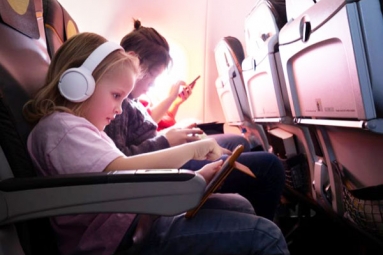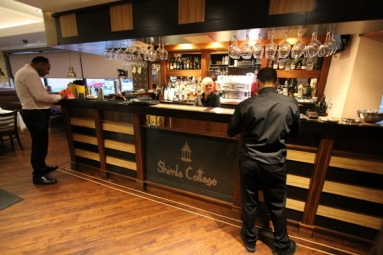
Although the TSA is expanding its popular PreCheck fast lanes this fall, the agency is under pressure to speed up screening for even more fliers, so all aspects of the checkpoint experience are being scrutinized.
Here's one culprit that isn’t going away anytime soon: bin gridlock. Simply put, it’s too many bins piling up on the other side of the detector and not enough hands to move them off the conveyor belt. The TSA frequently has to call in extra help to keep bins moving during busy times. To get a closer look at this oft-overlooked side of security, I spent an afternoon earlier this summer at Dulles Airport outside Washington as a volunteer bin-pusher.
The bin backup can get so bad that the TSA has to pull non-screener staff away from desk jobs just to move the containers along—it simply doesn’t have enough officers to handle inspections and housekeeping chores. And bin-lackey duties don’t require any special training or certification. All it requires is some latex gloves and being fast on your feet.
As it happens, volume at the airport that afternoon was busier than on a normal day, and by 3 p.m., the lanes were swelling. The posted wait times at the checkpoint, less than 15 minutes when I arrived an hour earlier, had doubled to 30.
Conveniently, Dulles checkpoints have a spacious refresh zone so passengers can pull themselves together before leaving security; but that's really just a zone for losing things.
Experienced screeners say on a typical shift during rush hour, frantic fliers routinely leave behind belts, watches and harder-to-replace items like laptops, cell phones, car keys—even boarding passes. A main fringe benefit for fliers signing up for PreCheck is that they get spared the security striptease: They get to keep shoes and jackets on and even leave their laptops in their carry-ons and thus are less likely to have to pay a visit to the TSA lost and found.
But for the rest of the flying public, things could get worse, as airline fees inspire more fliers to haul their belongings through the checkpoint.
In the space of just one hour, the left-behind loot I picked up included: 1 passport, 2 laptops, 1 wallet, 1 belt, 1 boarding pass and an airport parking lot ticket. And loose change: I didn’t count it, but consider that the TSA last year collected more than $500,000 worth of errant nickels, dimes and quarters nationwide; the money goes back to TSA coffers and is used for general security purposes, although some lawmakers argue it should be donated to charity.
There's also a sizable trove of items that aren’t claimed, as well as a locker labeled “VAP," for voluntarily abandoned property, such as Swiss Army knives that many travelers simply surrender, given the lack of good alternatives (going back to the terminal to check it as baggage is clearly not an option for anyone in a hurry). As you may have heard, that trove is divvied up among states, who can dispose of it at auction or even on eBay.
The screeners on duty the day I was there seemed to take it all in stride, like Kyle Martin, who, when I asked him why he joined the TSA, gave this pithy response: “It was either this or join the Army.” So far, the TSA’s workforce has been spared damage from the sequester—even fully staffed, the agency is having trouble streamlining the checkpoint process. It might just be that we're hauling too much stuff; last year, the TSA handled nearly two million passengers every day, and, on average, each flier pushes through two to three bins plus assorted carry-ons, backpacks, strollers and sporting equipment.
So what’s the solution, then? TSA chief John Pistole has pledged that by the end of 2013, at least 25 percent of travelers will be eligible for expedited security; Congress has set a goal of getting fully half of all fliers into some sort of fast-track program (keep in the mind that the TSA’s mandate to keep things "random" means even PreCheck members will sometimes get sent back to the slow lanes).
More recently, the TSA said it will select some low-risk fliers at the time of booking to get expedited treatment. Still, the agency says you’ll have a better chance of bypassing long lines if you sign up for PreCheck (at $85 for five years) and get fingerprinted and vetted at new locations that are set to open this fall, with the first ones at Dulles and Indianapolis.
Meanwhile, the humble bin is becoming a revenue raiser in itself. At many airports, such as Dulles, the bins carry advertising, and the resulting revenues help to defray the cost of the bins and the carts used to haul them back and forth.
While the TSA isn’t directly involved, an official pointed out how much nicer the ad-supported tubs looked—the ones in this photo have a deep blue image, versus the utilitarian gray containers they replaced. A victory for aesthetics, perhaps, but fliers can only hope that the rest of the checkpoint drill will soon measure up.








